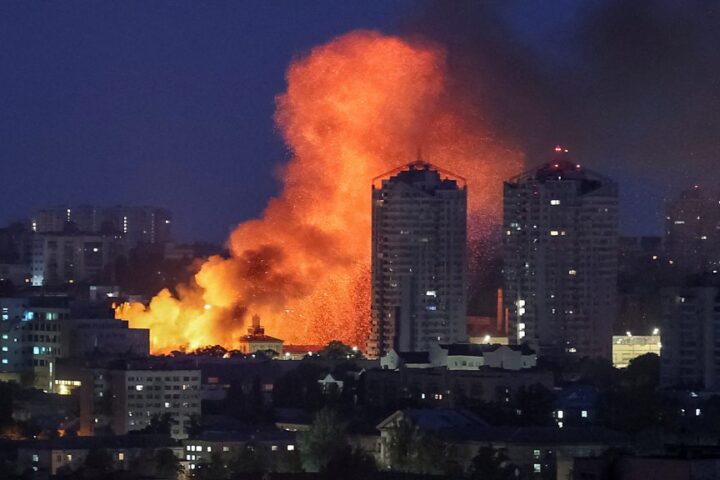After forcibly seizing power in Afghanistan in 2021, the Taliban made a public effort to assuage concerns by the international community that it would return to its brutal rule of the 1990s.
But the militant Islamist group has gradually reverted to its repressive policies of the past as the prospect of international recognition and assistance has diminished, experts said.
In recent weeks, the Taliban has reintroduced corporal punishments, including public floggings. The militants have also intensified their assault on women’s rights, including recently banning women from attending university.
Observers said there are likely more draconian edicts in the pipeline as the Taliban reestablishes a theocratic state governed by the militant group’s extreme and tribal interpretation of Islamic Shari’a law.
“It is very likely that the Taliban will increasingly impose more repressive measures,” said Weeda Mehran, co-director of the Center for Advanced International Studies (CAIS) at the University of Exeter. “This trend has been established.”
‘Draconian Policies‘
In the past 16 months, the Taliban has imposed dozens of restrictions on women’s appearances, freedom of movement, and their right to work and receive an education.
Only girls below the sixth grade are allowed to attend school. High schools for girls have been closed, despite repeated promises to reopen them. In a major blow, the Taliban banned women from attending university on December 20.
The Taliban’s university ban has fueled speculation that the group will impose a blanket ban on education for girls and women like during its first stint in power from 1996-2001. The Taliban’s higher education minister has called female education “un-Islamic and against Afghan values.”
The militants have also reintroduced corporal punishments in recent weeks, including the public flogging of men and women for crimes such as theft, eloping from home, and committing adultery.
On December 7, a man was publicly executed in western Afghanistan, the first such event to be carried out since the Taliban takeover. The execution was attended by top Taliban leaders.

The public punishments came soon after Taliban Supreme Leader Mullah Haibatullah Akhundzada ordered the group’s courts to employ strict interpretations of Shari’a law, which prescribes punishments such as stoning, execution, amputation, and public lashings. The Taliban handed down similar punishments during its previous rule.
Mehran of the University of Exeter said the Taliban has been gradually returning to its “old practices” as its hopes of recognition by the international community have dimmed.
“The only reason the Taliban did not originally implement its draconian policies at the same level and extent as its first regime in the 1990s was because the group was vying for international recognition, aid, and trade,” said Mehran.
In the Taliban’s first press conference after seizing power in Kabul, spokesman Zabihullah Mujahid pledged to uphold the free press and women’s rights — though within the framework of Islam. But the militants have failed to live up to their promises and instead reimposed many of the repressive policies of the past.
Omar Sadr, an author and research scholar at the University of Pittsburgh, said the Taliban has strategically used the Islamic concept of “taqiya,” or deliberate deception, to mislead the international community.
“The group’s stance was ambiguous as it never promised basic human rights based on the Universal Declaration of Human Rights, gender equality, and democratic governance,” said Sadr. “Many interpreted the ambiguous stance as moderation. But there was no evidence to support the assumption that the Taliban aimed to moderate.”
Analysts said the Taliban is likely to impose more restrictions in the year ahead, including further eroding women’s rights, expanding its crackdown on dissent, empowering its notorious morality police to forcefully impose Taliban edicts, and increasing its use of corporal punishments.
‘Pure’ Islamic System
The Taliban’s supreme leader has repeatedly pledged to establish what he has called a “pure” Islamic system in Afghanistan, without offering any details.
Afghanistan was an Islamic republic under the political system that was ushered in after the U.S.-led invasion that toppled the Taliban from power in 2001. The 2004 constitution prescribed that “no law can be contrary to the beliefs and provisions of the sacred religion of Islam,” although it contained more liberal and democratic elements.

Observers said the Taliban has retained its goal of recreating a theocracy based on its radical interpretation of Islam.
“The key features of its medievalist vision of political order are a lack of differentiation between the public and private, extensive policing of individual behavior, and degrading of women to second-class subjects,” said Sadr.
In October Mujahid announced that the group was working on creating a new constitution.
In the late 1990s, the Taliban drafted a 14-page constitution — the first and only attempt by the group to codify its views on power and governance. But the document was never officially ratified, and it was unclear how much of it was ever implemented before the militants were ousted from power.
Haroun Rahimi, an Afghan academic who researches Islamic law, said the Taliban is moving toward a “greater use of codification.”
“The recent trend has certainly been a shift away from a more laissez faire approach to a more regimented enforcement of what the Taliban consider to be Islamic principles,” said Rahimi.
During the summer, Taliban Chief Justice Abdul Hakim Haqqani published a book that some observers have labeled the Taliban’s manifesto. The book, which was reportedly endorsed by the Taliban leadership, hints at the group’s political vision for Afghanistan.
“The book makes an argument for the extensive enforcement of Islamic rules through state force on par with the first rendition of the Islamic Emirate,” said Rahimi, referring to the official name of the Taliban government. “How this unfolds in practice remains to be seen.”

















